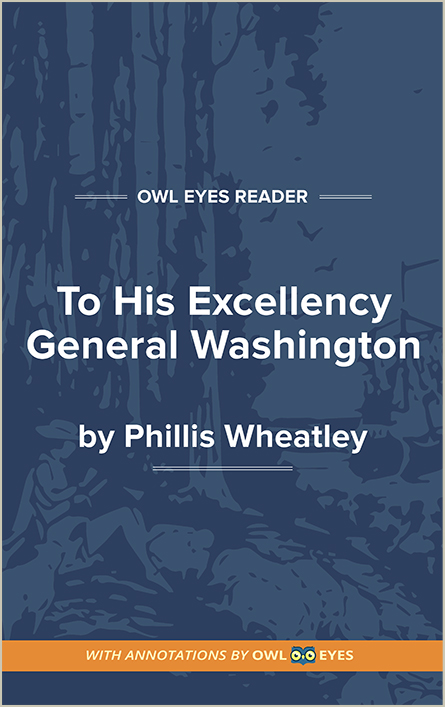Analysis Pages
Phillis Wheatley Biography
Although other African Americans published individual poems before her, Phillis Wheatley is often regarded as the first African American poet. In 1773 she became the first black American to publish a book of poetry: Poems on Various Subjects, Religious and Moral.
Wheatley was born on the west coast of Africa, probably in 1753. At age seven or eight, she was kidnapped from her parents’ home, sold to slave traders, and brought to America. John Wheatley, a prosperous tailor, and his wife, Susannah, purchased the slave girl at a Boston slave market in 1761 and gave her the name Phillis. She became Mrs. Wheatley’s personal maid.
The Wheatleys were strict Methodists who attempted to turn their slaves into literate and cultured Christians. Within eighteen months of her purchase, Phillis Wheatley had learned to speak, read, and write in English and had begun to study Latin as well. At an early age, she was exposed to the Bible, the classical Greek and Roman works, and contemporary British poets. While still in her teens, with her masters’ encouragement, Wheatley began to write poems.
At age fourteen, Wheatley published her first poem in a Newport, Rhode Island, newspaper. The elegy “On the Death of Mr. George Whitefield” appeared in 1770 and brought the young poet some recognition. The poem was included in Poems on Various Subjects, first published in London in 1773. That volume of thirty-eight poems brought Wheatley widespread attention. She became known as the “sable muse” and was cited in England and America as an example of the impressive intellectual potential of African slaves.
The volume comprises religious poems, elegies, and historical poems, written, for the most part, in the neoclassical style of eighteenth century British and colonial writers. Most of the poems consist of series of rhyming couplets reminiscent of those of Alexander Pope, the British poet whom Wheatley greatly admired.
The elegies are generally considered the finest poems in Poems on Various Subjects, the best ones rivaling those of an earlier colonial poet, Anne Bradstreet. Their subjects include ministers, physicians, dignitaries, and family friends. Like Bradstreet, Wheatley often accepts death with the hope of an everlasting afterlife. In “To a Lady and Her Children, On the Death of Her Son and Their Brother,” for example, Wheatley urges the family members of a deceased child to cease their mourning and look forward to the day when they can join their loved one on heaven’s shores.
Wheatley visited England as her collection was published and met various dignitaries, including Benjamin Franklin. When she returned to America, her mistress, Mrs. Wheatley, died, and Phillis was set free by Mr. Wheatley. She became an ardent supporter of the colonial cause during the American Revolution, and she met General George Washington in 1775 when he was headquartered in Boston. Wheatley honored Washington with a poem titled “To His Excellency General Washington.”
Wheatley continued to publish poetry in newspapers and pamphlets; she tried to publish another volume of poems in 1779 but was unable to attract a publisher. After Poems on Various Subjects, Wheatley produced more than fifty other poems, some of which have been lost. Many of her letters, however, did survive and were later published.
Only a handful of Wheatley’s poems deal with the issue of slavery, and those poems often make contradictory statements about the institution. In “On Being Brought From Africa to America,” for example, Wheatley states, “’Twas mercy brought me from my Pagan land,/ Taught my benighted soul to...
(The entire page is 875 words.)
Owl Eyes subscribers get unlimited access to our expert annotations, analyses, and study guides on your favorite texts. Master the classics for less than $5/month!

